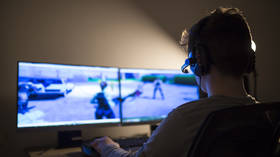Court rules on appeal over video game limits


A Japanese court has upheld a local ordinance placing limits on how long children can play video games per day. The Takamatsu District Court in western Japan announced on Tuesday that the guidelines do not violate the constitution, as was alleged in a lawsuit filed by a man and his mother who claimed their right to self-determination was being infringed upon.
As reported by Kyodo News, the ordinance was first implemented in the Kagawa Prefecture in April 2020 and suggested that parents should limit playing hours for children. Specifically, it recommended limiting video games to just 60 minutes a day on school days for those under 18, and 90 minutes a day on non-school days. It also suggested online gaming sessions should end by 9pm for under 15s, and by 10pm for older children.
The authorities said the intention was to reduce video game addiction, which Kyodo News said has been associated with diminishing academic and physical performance among Japanese students, some of whom develop sleep disorders and become socially reclusive.
While parents are advised to adhere to these rules and prevent children from spending too much time in front of the screen, there are no legal requirements or ramifications for those who do not.
Nevertheless, the plaintiffs, who sued the prefectural government for 1.6 million yen ($11,550) in September 2020, argued that the ordinance violates Article 13 of the Japanese Constitution, which guarantees citizens the right to liberty and the pursuit of happiness, and said the guidelines had caused mental distress to children.
The plaintiffs also insist that there was no scientific rationale for the ordinance, as the Japanese parliament had previously stated it was not aware of any scientific basis to support the effectiveness of imposing time limits to prevent gaming addiction.
The prefectural government pointed out that the World Health Organization recognized ‘gaming disorder’ as an addictive behavior back in 2018, and maintained that the ordinance does not violate the constitution, as it merely suggests a set of guidelines and imposes no legal obligations to comply with them.